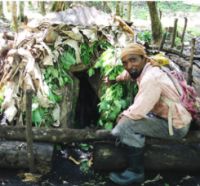Publications: Call for a Special Issue on Caribbean Ethnobotany
 [2]
[2]
Due to the disruption caused by the Covid-19 pandemic, the deadline for submission to the Special Issue on Caribbean Ethnobotany, with Dr. Ina Vandebroek of The New York Botanical Garden serving as the Guest Editor, has been postponed until December 1, 2020.
Despite a history of written records of plants and their usefulness to humans dating back to the colonial period, and the commendable efforts of the TRAMIL (Traditional Medicine in the Islands) network, important aspects remain to be elucidated about Caribbean ethnobotany today. The total number of edible, medicinal, and other culturally useful plants inhabiting individual Caribbean islands is still unknown, as well as the degree of shared useful species across islands and with nearby geographic regions. Furthermore, comparison of African, Amerindian, and European influences on Caribbean plant knowledge, as well as contributions from other cultural groups that have received less attention, such as Chinese, Indian, and other communities, merits continued attention.
This Special Issue will bring together studies that highlight past and present ethnobotanical research into Caribbean biodiversity and traditional knowledge of plants for human subsistence and well-being, including for spiritual purposes. Studies should move beyond compiled lists of useful plants, postulate a clear hypothesis and research question(s), and address these through original research, or through a systematic review of the literature.
Manuscripts should conform to the standards of Economic Botany (see About the journal Economic Botany [3] ). Scholars interested in contributing a paper should contact Dr. Ina Vandebroek (ivandebroek@nybg.org [4]) or Dr. Robert Voeks (rvoeks@fullerton.edu)
The deadline for submission is 1 December 2020.